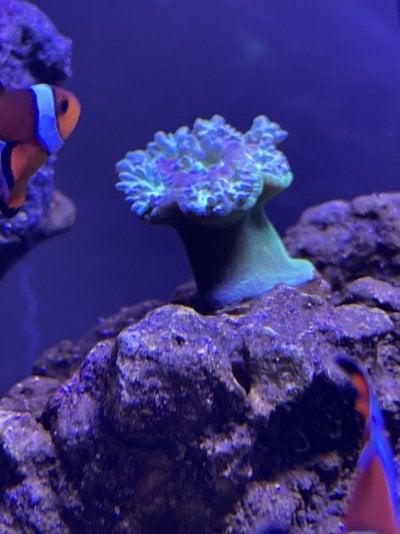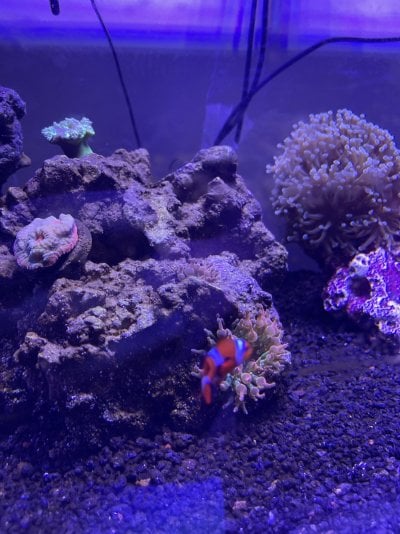Dear Reefers,
I had gotten my Duncan about 6 months ago (my tank was 6months old at the time). About 3 months into having it, it split into 6-8 heads. My two clowns started trying to host it, and it was completely sucked into its tube for 2 entire weeks. I thought it was going to die. I let it go and crossed my fingers that it would eventually tolerate my clowns constantly yanking on its tentacles. Eventually it did get better, but has never fully recovered since the clowns started hosting it. It has looked like this for over 3 months now, and I have yet to see its tentacles extended in 4ish months. I cant tell if there’s something else in the water causing this (or a lack there of). Maybe lighting? Or maybe the clowns are keeping my Duncan in stress? Any help is greatly appreciated
Parameters:
Calcium: 470
Alk: 11.2 dkH
Phos: 0
Nitrate: 0
Mg: 1240
Ph: 8.2
Salt: 1.026
*20 gallon tank, Ive been dosing vinegar for past 3 weeks. I have 2 bubble tip anemones that split, a chalice, acan, zoas, and a softball sized frammer that grows like a weed. I recently had an alveopora that stopped opening and eventually perished.


I had gotten my Duncan about 6 months ago (my tank was 6months old at the time). About 3 months into having it, it split into 6-8 heads. My two clowns started trying to host it, and it was completely sucked into its tube for 2 entire weeks. I thought it was going to die. I let it go and crossed my fingers that it would eventually tolerate my clowns constantly yanking on its tentacles. Eventually it did get better, but has never fully recovered since the clowns started hosting it. It has looked like this for over 3 months now, and I have yet to see its tentacles extended in 4ish months. I cant tell if there’s something else in the water causing this (or a lack there of). Maybe lighting? Or maybe the clowns are keeping my Duncan in stress? Any help is greatly appreciated
Parameters:
Calcium: 470
Alk: 11.2 dkH
Phos: 0
Nitrate: 0
Mg: 1240
Ph: 8.2
Salt: 1.026
*20 gallon tank, Ive been dosing vinegar for past 3 weeks. I have 2 bubble tip anemones that split, a chalice, acan, zoas, and a softball sized frammer that grows like a weed. I recently had an alveopora that stopped opening and eventually perished.
















